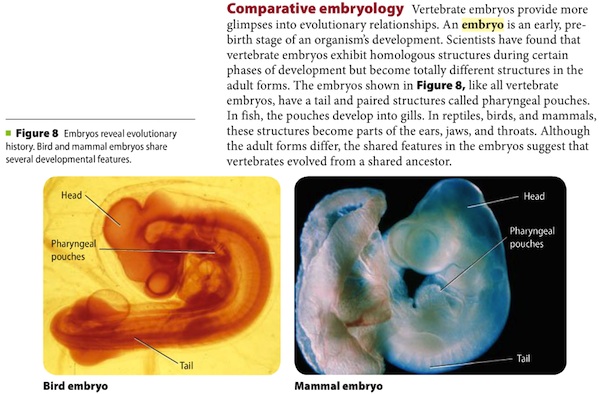 Yesterday, NCSE and the Texas Freedom Network issued a joint press release about internal documents demonstrating how creationists and climate change deniers tried to take over the Texas textbook adoption process. By securing seats on review committees, the science deniers tried to rewrite textbooks, forcing good science out of the textbooks and wedging in bad science, pseudoscience, and personal ideology.
Yesterday, NCSE and the Texas Freedom Network issued a joint press release about internal documents demonstrating how creationists and climate change deniers tried to take over the Texas textbook adoption process. By securing seats on review committees, the science deniers tried to rewrite textbooks, forcing good science out of the textbooks and wedging in bad science, pseudoscience, and personal ideology.
You can look over the review spreadsheets yourself, or see some of the most egregious examples that we picked out.
That list only scratches the surface, partly because we had to find examples that could be explained easily in the limited space of a press release. But here at the Science League of America, we can take on anything the deniers throw at us.
It doesn’t take much to explain what’s wrong with a reviewer insisting, “I understand the National Academy of Science's [sic] strong support of the theory of evolution. At the same time, this is a theory. As an educator, parent, and grandparent, I feel very firmly that ‘creation science’ based on Biblical principles should be incorporated into every Biology book that is up for adoption.” But it takes a bit more to explain what’s wrong with this reviewer’s speculation about the Glencoe/McGraw-Hill textbook:
This section seems to introduce Haeckel's embryos and recapitulation theory in a somewhat sanitized form. Haeckel's work was exposed as fraudulent during his lifetime and recapitulation theory was rejected a long time ago.”
Criticisms and complaints about drawings produced by Ernst Haeckel are a staple of creationism. Attacks on these drawings are a major theme of Jonathan Wells’s Icons of Evolution, as discussed in NCSE’s review, and addressed in Explore Evolution, a propagandistic “textbook” largely written by the Discovery Institute’s staff. The allegation that Haeckel’s work is fraudulent is unjustified, as explained by the leading scholar of Haeckel’s life in his paper “Haeckel's embryos: fraud not proven”. “When Haeckel’s science is placed in the wider context…his accomplishments appear in a decidedly more favorable light,” Robert Richards explains. “And in the particular instance under review here, I think that light shows that fraud has not been proven.”
Worse yet, the textbook in question doesn’t even talk about Haeckel. Here’s the page in question:

The passage doesn’t mention Haeckel, and the illustrations are photographs, not drawings. The idea that “ontogeny recapitulates phylogeny”—Haeckel’s proposed Biogenetic Law that developing embryos pass through all the stages of their evolutionary development—never caught on, and isn’t at all what this passage is discussing.
Instead, the passage is describing Von Baer’s law, which, as Stephen Jay Gould explained clearly:
In 1828, von Baer enunciated the central principle of embryological development, later known as ''von Baer's law'' and now regarded as the correct interpretation of Ernst Haeckel's famous (and erroneous) claim that ''ontogeny recapitulates phylogeny,'' or that the successive forms of embryology repeat the adult stages of a lineage's evolution—with the gill slits of an early human embryo representing an ancestral fish and the later tail an ancestral reptile, for example.
By contrast, von Baer proposed a principle of progressive specification and differentiation: One can first tell that an embryo will become a vertebrate and not some sort of invertebrate, then a mammal and not another kind of vertebrate, then a carnivore and not a rodent or ruminant, then a dog and not a cat, and finally Buster the Beagle and not another breed.
To summarize, then, the reviewer here is trying to trump up a controversy by rehashing creationist screeds (without understanding them), invoking Haeckel’s drawings when the book shows photographs, alleging fraud where there was none, and twisting well-documented science to make it seem like something controversial.
In a sense it’s the perfect microcosm of what’s wrong with the review process. A reviewer driven by an agenda and lacking the scientific qualifications to judge the textbook fairly is using falsehoods and misrepresentation to try to strip some of the evidence for evolution out of textbooks. If publishers give in to that pressure, Texas students will lose out. That’s why we’re urging Texans to contact the state board of education and tell them not to force publishers to make textbooks less accurate.

